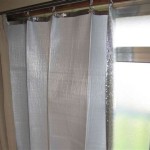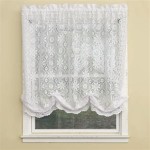Should Shower Curtain Touch Floor?
The debate of whether or not a shower curtain should touch the floor is a common dilemma faced by many homeowners and renters. While some believe it's necessary for cleanliness and water containment, others argue that it can lead to mildew and mold growth. In this article, we will explore both sides of the argument to help you make an informed decision for your bathroom.
Arguments for Touching the Floor
Proponents of shower curtains touching the floor argue that it provides several benefits:
- Water containment: When the curtain extends to the floor, it creates a barrier that prevents water from splashing outside the shower or tub area, keeping the bathroom floor dry.
- Reduced risk of flooding: By trapping water inside the shower, a floor-length curtain reduces the risk of overflow and potential damage to your bathroom or downstairs neighbors.
- Easier cleaning: When the curtain hangs closer to the floor, it's easier to wipe down and clean, as there's less chance of water or mold accumulating on the bottom.
Arguments Against Touching the Floor
Opponents of floor-length shower curtains cite several concerns:
- Mildew and mold growth: The constant presence of moisture at the bottom of the curtain can create a breeding ground for mildew and mold, especially if the curtain is not properly dried or ventilated.
- Unsightly appearance: Some argue that shower curtains touching the floor can appear messy and unkempt, especially if they become discolored or stained.
- Reduced air circulation: When the curtain is touching the floor, it can block air circulation around the shower area, which can contribute to a humid environment and further promote mold growth.
Alternatives to Floor-Length Curtains
If you're not convinced by either side of the argument, there are alternative options to consider:
- Moisture-resistant curtains: These curtains are made from materials that resist water absorption, reducing the risk of mildew and mold growth.
- Curtain clips: Curtain clips or weights can be attached to the bottom of the curtain to prevent it from touching the floor while still providing adequate water containment.
- Shower doors: Glass or acrylic shower doors are a permanent solution that effectively contains water while providing a more stylish and contemporary look.
Conclusion
The decision of whether or not your shower curtain should touch the floor is ultimately a personal preference. Consider the arguments presented above and evaluate the specific needs and conditions of your bathroom. If you choose to let the curtain touch the floor, be sure to keep it clean and well-ventilated to prevent mildew and mold growth. If you prefer to keep it off the floor, explore alternative options to ensure adequate water containment and prevent water damage.

Are Shower Curtains Supposed To Touch The Floor

Finding The Right Height For Your Shower Curtain Diy Playbook

The Hunt For Perfect Shower Curtain Erin Kestenbaum

How Do You Feel About This Shower Curtain House Of Hepworths

7 Surprising Mistakes You Re Making With Your Shower Curtain

How To Hang Your Shower Curtain Higher Young House Love

Curtain Length Dilemma To Touch Or Not The Ground F J Outdoors

How To Hang Your Shower Curtain Higher Young House Love
8 Eco Friendly Non Toxic Shower Curtains Liners Green With Less

Types Of Curtains To Know When Choosing Window Treatments








